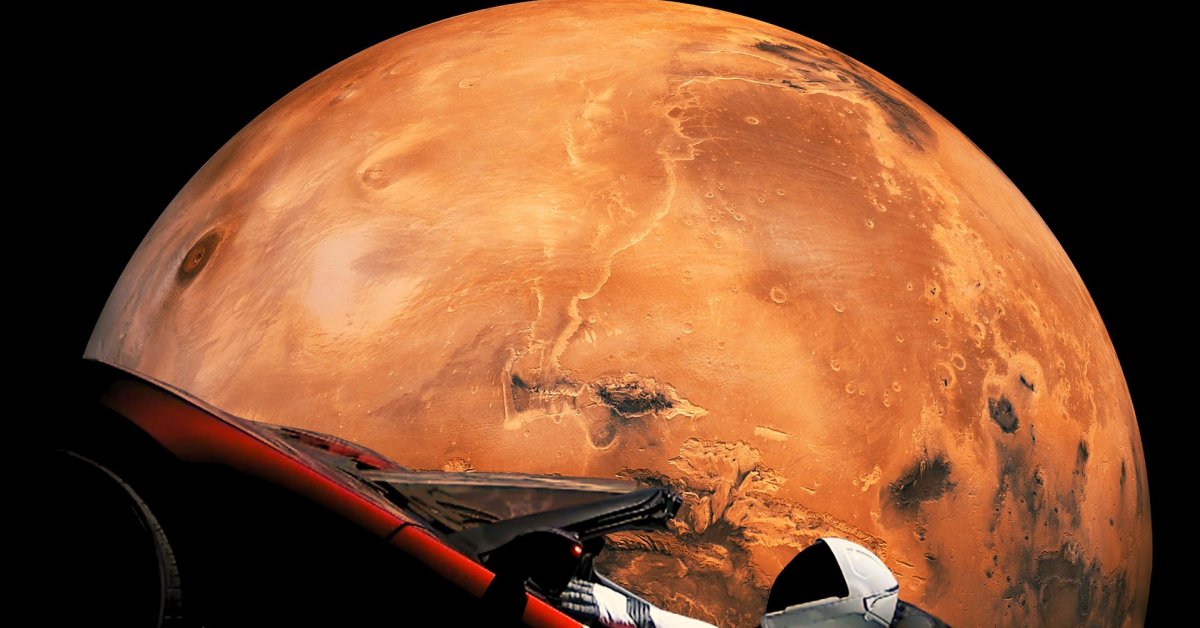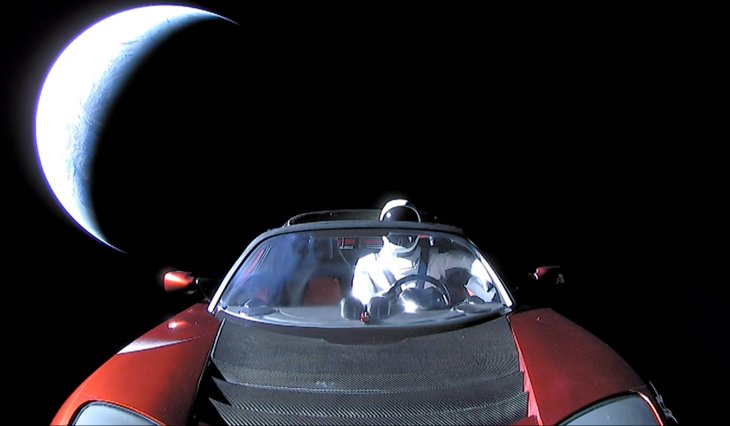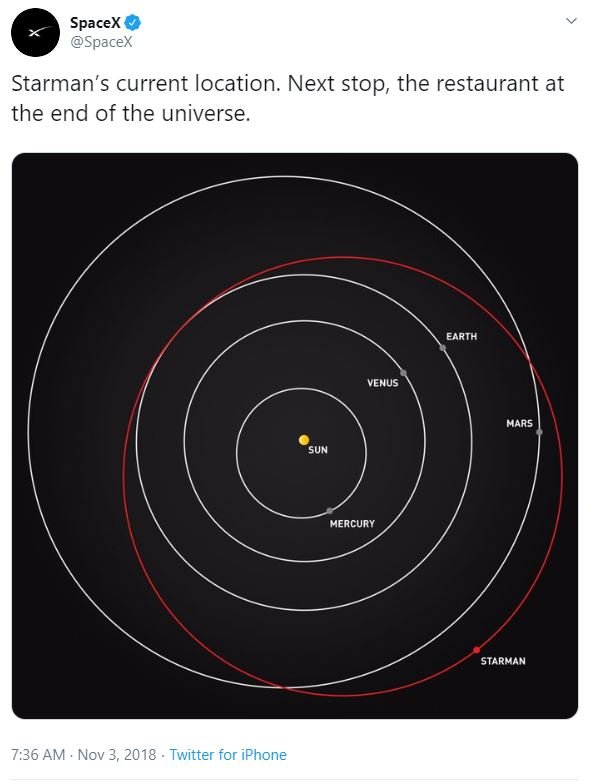SpaceX's Roadster And Its Starman Past Mars, Continuing Their Space Trip
Dhir Acharya - Nov 06, 2018

Last weekend, Tesla Roadster and its only passenger passed Mars, marking another milestone for private spaceflight, and continuing their trip in space.
- SpaceX’s Starship Explosion: A Part Of Musk's Master Plan?
- Believe It Or Not, Dirt From Mars Can Be Bought With Only $20 A Kilogram
- Starlink Can Bring High-Speed Internet Service To Airplanes, Ships And Trucks
It may be hard to believe, but the Falcon Heavy Rocket has made through nine months since it was launched by SpaceX with a payload into Sun-centric orbit. The rocket’s only passenger has passed Mars, this had marked another milestone for the spaceflight leader.

Over last weekend, SpaceX announced that Starman has completed one of the impressive goals for the launch, pasting Mars’ orbit. The Tesla Roadster and its passenger are still flying through space, yet it will not travel much farther before it loops around towards the Sun and repeats its journey for some more time, which we don’t know for sure how much more.
Launching Falcon Heavy was such an iconic event, especially when Elon Musk and his company weren’t even sure if the spacecraft could make its way into space. In terms of this launch, Musk was extra careful with his expectations, saying it would already be a success if the ship did not blow up in its launch.

Well, it obviously turned out much better than what SpaceX’s founder worried before since the ship appeared to continue its trip without any problems. A live video showed the Tesla and Starman when the outer shell of the payload bay opened up.
SpaceX has moved from the Falcon Heavy. Recently, all the attention is going to SpaceX’s BFR, which stands for “Big Falcon Rocket”. BFR plays an important role to SpaceX which is expected to help humans achieve innovative milestones in science like trips to Mars.
Back in February this year, SpaceX launched the Falcon Heavy into space, carrying the Tesla Roadster. With the height of 70 meters and weight of over 1.4 million kilograms, this rocket is considered to have the highest payload capacity among current vehicle in operation, and the fourth-highest ever. The next Falcon Heavy is planned to be launched in early 2019.
Featured Stories

Features - Jan 29, 2026
Permanently Deleting Your Instagram Account: A Complete Step-by-Step Tutorial

Features - Jul 01, 2025
What Are The Fastest Passenger Vehicles Ever Created?

Features - Jun 25, 2025
Japan Hydrogen Breakthrough: Scientists Crack the Clean Energy Code with...

ICT News - Jun 25, 2025
AI Intimidation Tactics: CEOs Turn Flawed Technology Into Employee Fear Machine

Review - Jun 25, 2025
Windows 11 Problems: Is Microsoft's "Best" OS Actually Getting Worse?

Features - Jun 22, 2025
Telegram Founder Pavel Durov Plans to Split $14 Billion Fortune Among 106 Children

ICT News - Jun 22, 2025
Neuralink Telepathy Chip Enables Quadriplegic Rob Greiner to Control Games with...

Features - Jun 21, 2025
This Over $100 Bottle Has Nothing But Fresh Air Inside

Features - Jun 18, 2025
Best Mobile VPN Apps for Gaming 2025: Complete Guide

Features - Jun 18, 2025
A Math Formula Tells Us How Long Everything Will Live
Read more

Mobile- Feb 17, 2026
Anticipating the Samsung Galaxy S26 and S26+: Key Rumors and Specs
The Samsung Galaxy S26 series is on the horizon, sparking excitement among tech enthusiasts.

ICT News- Feb 19, 2026
Escalating Costs for NVIDIA RTX 50 Series GPUs: RTX 5090 Tops $5,000, RTX 5060 Ti Closes in on RTX 5070 Pricing
As the RTX 50 series continues to push boundaries in gaming and AI, these price trends raise questions about accessibility for average gamers.

ICT News- Feb 18, 2026
Google's Project Toscana: Elevating Pixel Face Unlock to Rival Apple's Face ID
As the smartphone landscape evolves, Google's push toward superior face unlock technology underscores its ambition to close the gap with Apple in user security and convenience.
Comments
Sort by Newest | Popular